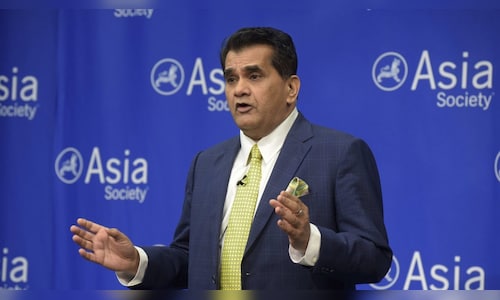“We have a shortage of data scientists, machine-learning experts, and product developers in India,” Kant told CNBC-TV18 on the sidelines of the Invest Kerala Global Summit. “The market demands a diversified curriculum to meet today’s tech needs.”
Kant, who served as CEO of NITI Aayog from 2016 to 2022, highlighted the pressing demand for 1.5 lakh product developers to fuel India’s startup ecosystem.
Given the recent focus on India, and other nations in the Global South (a geographic group comprising countries with lower income levels and sub-par socio-economic growth) with context to economic growth and sustainability, a need to develop large language models (LLMs) originating from these regions has emerged.
In recent times Chinese AI firm DeepSeek’s AI model, DeepSeek Coder, has opened up the possibility of a low-cost LLM originating from an emerging market like India. “We need to develop low-cost, low-energy-consuming and foundational sovereign models in the race for AI,” he said, “These models will need a convergence of clever engineering, software and computing power.”
However, should such a foundational model arise from India, it may well move beyond serving the needs of India’s population alone. In fact, Kant points out that emerging economies shouldn’t risk falling prey to becoming “tech colonies” of the Western world. “So, sovereign, open-source, low-cost, low-energy-consuming models will prevent the technology colonization of India,” he said.
He added: “It is important that AI development happens in the Global South because the West is full of biases.” And, while a country like India may not have the first-mover advantage when it comes to developing LLMs, the country still has an advantage over China, given the high risk of state interference in China’s LLM that is already being witnessed in DeepSeek Coder.
“Initial tech disruptors don’t always win the race, so India can take advantage of being the second mover,” said Kant, “China’s large language models will always have the risk of state interference, whereas India’s advantage is that the country is a trusted partner.”
Earlier this month, Finance Minister Nirmala Sitharaman announced a 20,000-crore-rupee Fund of Funds for deep-tech start-ups and innovation. “India needs more risk capital, so a fund of funds will help with ensuring that a lot of this patient capital comes in,” said Kant, who gave a thumbs-up to the slew of announcements for the start-up ecosystem made in the Union Budget.


